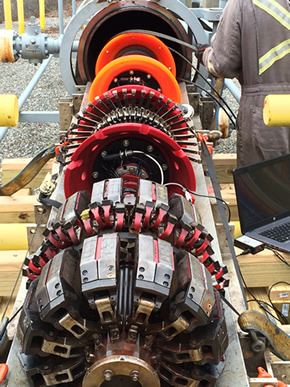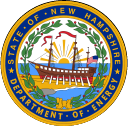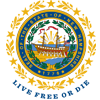Pipeline Safety Funding
An explanation of the funding sources for the New Hampshire Pipeline Safety Program.
 In December 2006, the U.S. Congress authorized an increase in the federal share of funding for pipeline safety programs, from the current maximum of 50/50 federal/state cost sharing to a maximum of 80/20 federal/state cost sharing. 2014 marked the first year New Hampshire attained reimbursements at the maximum permissible level without requiring suspension funding. Federal projections indicate that as long as New Hampshire is able to maintain its quality program the Division of Enforcement should continue to receive federal funds to cover approximately 80% of the program’s cost. This assumes appropriate funding is provided by Congress in reauthorization legislations. The Division of Enforcement is allowed reimbursements for all direct expenditures related to pipeline safety as well as certain indirect costs. The Division of Enforcement’s grants are based on a federal fee assessed to interstate pipelines by the Pipeline and Hazardous Material Safety Administration that is included in rates approved by Federal Energy Regulatory Commission and subsequently collected from the local distribution companies as an allowable cost within cost of gas dockets. The remaining funding is through assessments provided to New Hampshire Department of Energy in accordance with RSA 363-A
In December 2006, the U.S. Congress authorized an increase in the federal share of funding for pipeline safety programs, from the current maximum of 50/50 federal/state cost sharing to a maximum of 80/20 federal/state cost sharing. 2014 marked the first year New Hampshire attained reimbursements at the maximum permissible level without requiring suspension funding. Federal projections indicate that as long as New Hampshire is able to maintain its quality program the Division of Enforcement should continue to receive federal funds to cover approximately 80% of the program’s cost. This assumes appropriate funding is provided by Congress in reauthorization legislations. The Division of Enforcement is allowed reimbursements for all direct expenditures related to pipeline safety as well as certain indirect costs. The Division of Enforcement’s grants are based on a federal fee assessed to interstate pipelines by the Pipeline and Hazardous Material Safety Administration that is included in rates approved by Federal Energy Regulatory Commission and subsequently collected from the local distribution companies as an allowable cost within cost of gas dockets. The remaining funding is through assessments provided to New Hampshire Department of Energy in accordance with RSA 363-A
In June 2014, the NH Legislature passed HB 1224 amending RSA 363:22 by adding a new section directing the Commission to petition the federal government to seek certification to perform interstate pipeline inspections for the lone hazardous liquid pipeline and the four interstate natural gas transmission pipelines in New Hampshire-see RSA 363:22-a. From 2014 thru 2020 the Public Utilities Commission submitted requests for annual interstate pipeline certification, but was denied by PHMSA each year. Going forward, the Department of Energy will be submitting requests.



